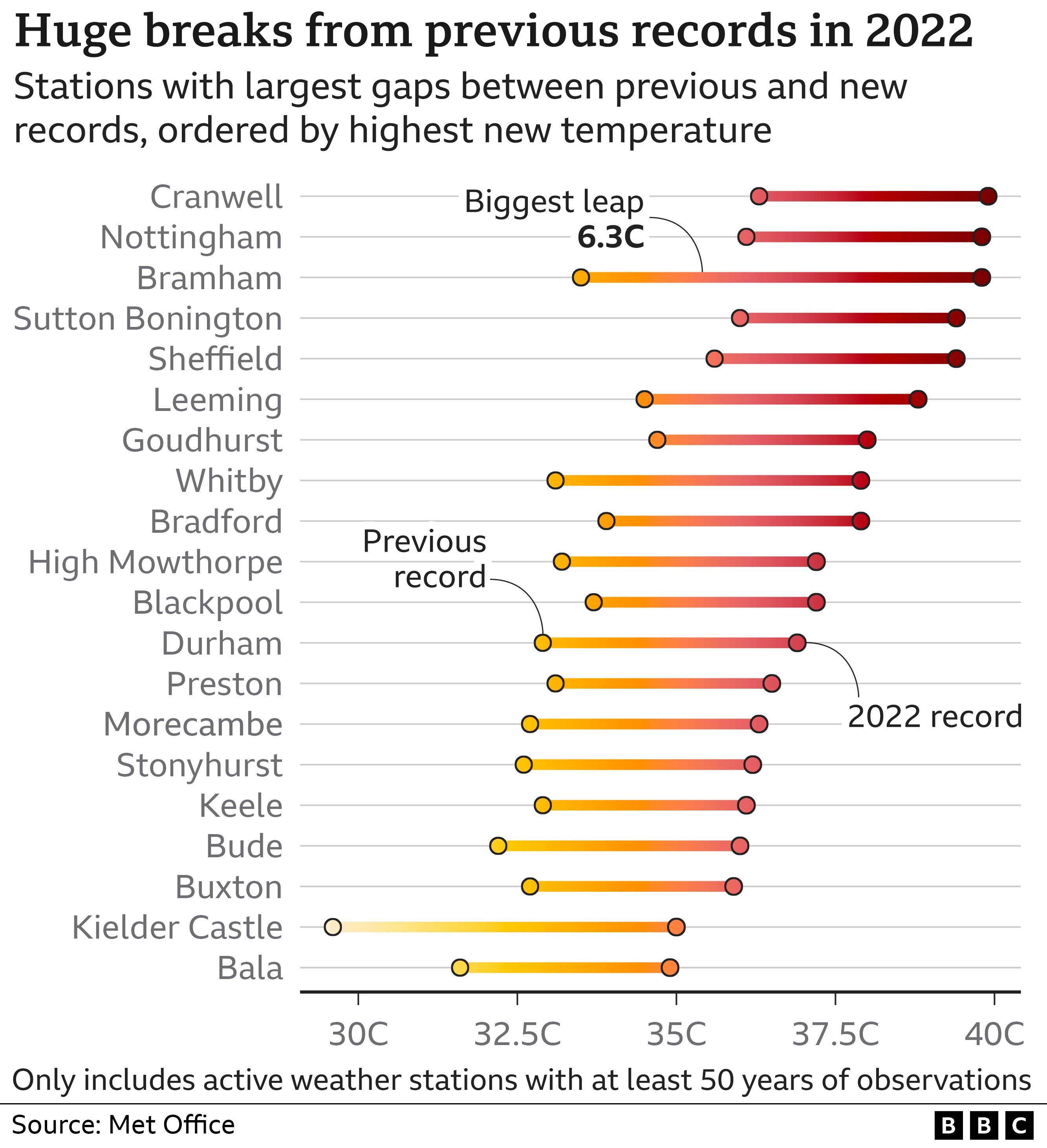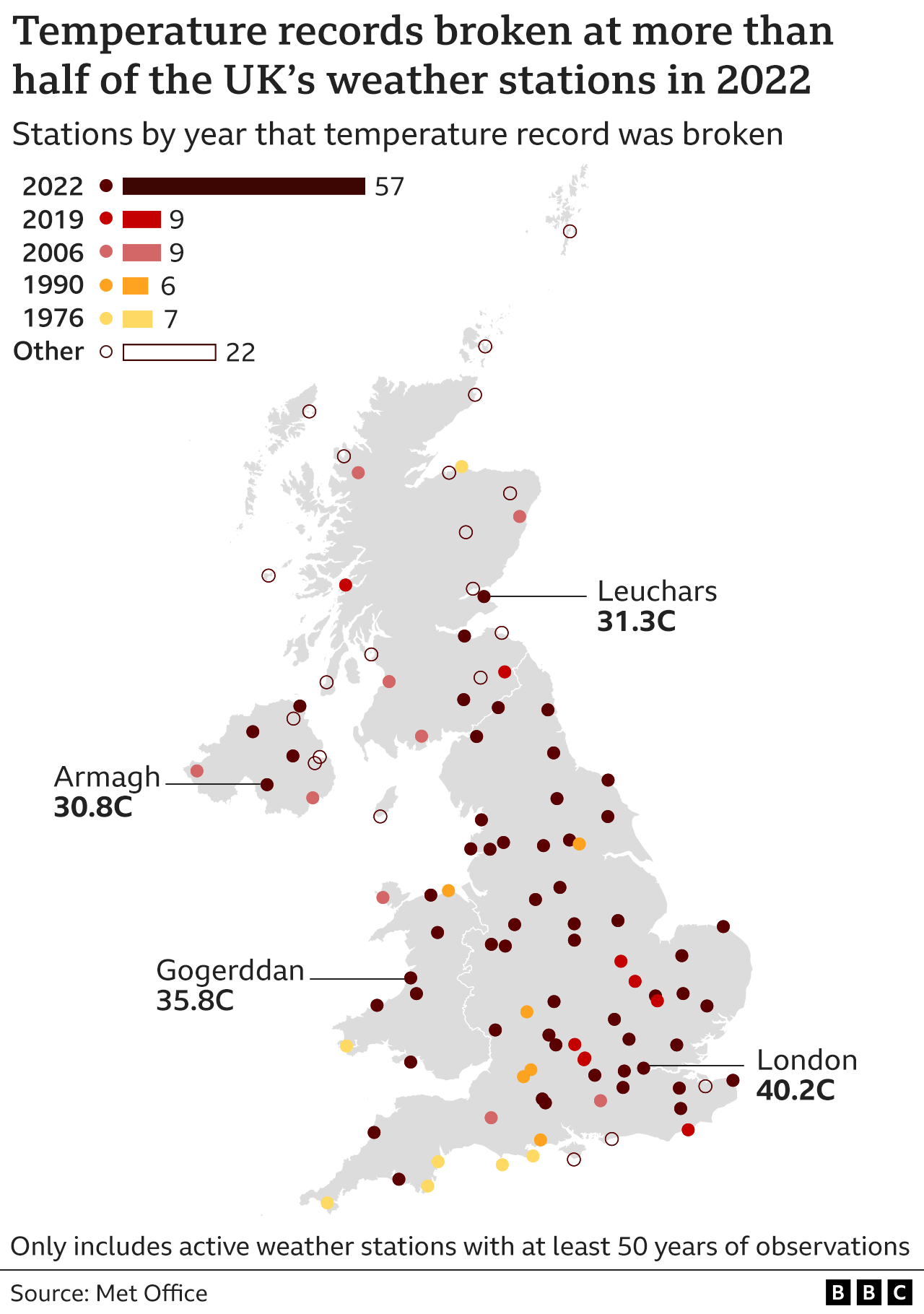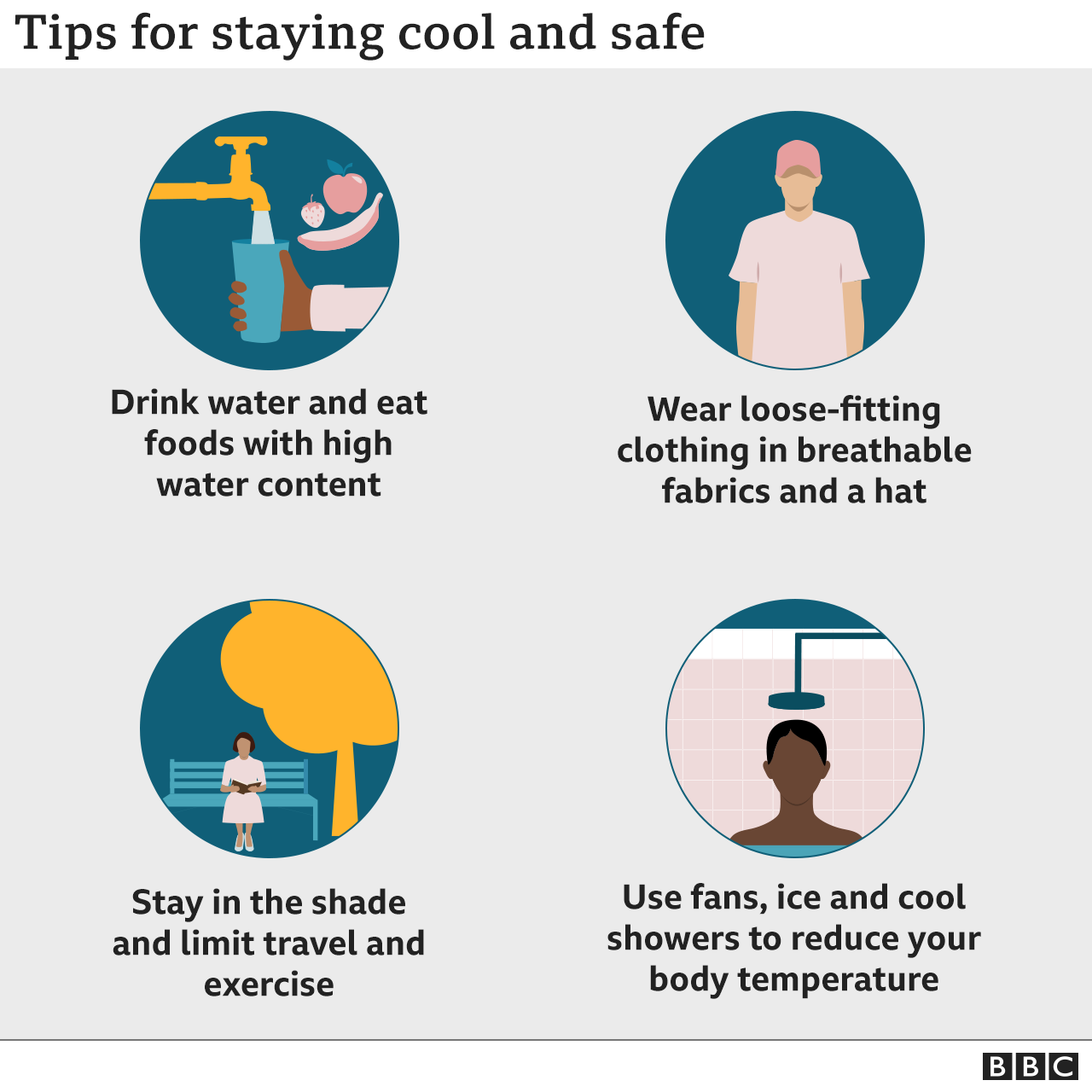According to the Met Office, scorching summers are occurring more frequently.
Long-term changes in the UK's temperature are indicated by weather readings going back more than a century.
Yes, since the 19th century, Britain has gradually warmed up. The UK has warmed by 0.9C over the last three decades.
Since 1884, the ten hottest years have all occurred since 2002. Furthermore, none of the coldest years this century have been recorded.
When a temperature of 40°C was measured in July 2022 at Coningsby in Lincolnshire, the UK broke its previous high temperature record.
In Cambridge in 2019, 38.7C set the previous record.
According to Met Office data, the hottest day ever was recorded in 2022 at more than half of the UK's oldest operating weather stations.
In June 2023, the UK experienced its warmest average temperature on record.
The average monthly temperature of 15.8C was 0.9C higher than the previous record-high average June temperature, which was set in 1940 and 1976.
According to scientists at the Met Office, a prolonged warm spell is now twice as likely due to climate change.

The UK experienced its warmest year on record last year, with the average annual temperature breaking the 10-degree mark for the first time.
A heatwave is a stretch of hot weather during which the temperature is higher than normal for the season.
When maximum temperatures are recorded for at least three consecutive days in the UK exceeding a predetermined threshold, the Met Office declares a heatwave.
By county, that cutoff varies.

Summer heatwaves typically occur when high pressure builds over a region.
They may also bring what are known as "tropical nights," in which the nighttime temperature does not fall below 20°C.
As a result, it may be difficult to fall asleep at night, and the body may suffer from insufficient cooling.
Due to their erratic nature, the Met Office claims it is unclear whether heatwaves are occurring more frequently.
The increase in global temperatures is a result of climate change. Large-scale emissions of greenhouse gases, such as carbon dioxide, are trapping the sun's heat and warming the planet.
More extreme weather has resulted from this, including globally record-breaking high temperatures.
Periods of extreme heat do occur as part of normal weather patterns, but according to scientists, global warming is making them more frequent, more intense, and longer-lasting.

The UK's Met Office has issued a warning that summers like 2018 are 30 times more likely today than they were before the Industrial Revolution, when people first began generating the emissions that cause climate change.
According to a report on climate extremes in the UK, maximum temperatures have increased and warm spells have lasted longer in recent years.
It is anticipated that trend will continue. The UK might experience 40C days every three to four years by the year 2100.
Particularly for the weak, such as the elderly, children, and those with underlying medical conditions, hot weather can be dangerous.
Overexposure to the sun or high temperatures can result in health problems like heart failure and heat stroke.

Indirect effects include worsening mental health and a rise in mishaps like car crashes and drownings.
According to the Met Office, a 10-day heatwave in Europe in August 2003 resulted in the deaths of 20,000 people.
Once the temperature reaches 25°C to 26°C, the higher death rate begins to apply.
You should adjust your routine and behavior to the heat where you can.
Travel if you can in the morning or evening when it's cooler.
When spending time in the sun, don a hat and high-factor sunscreen.








